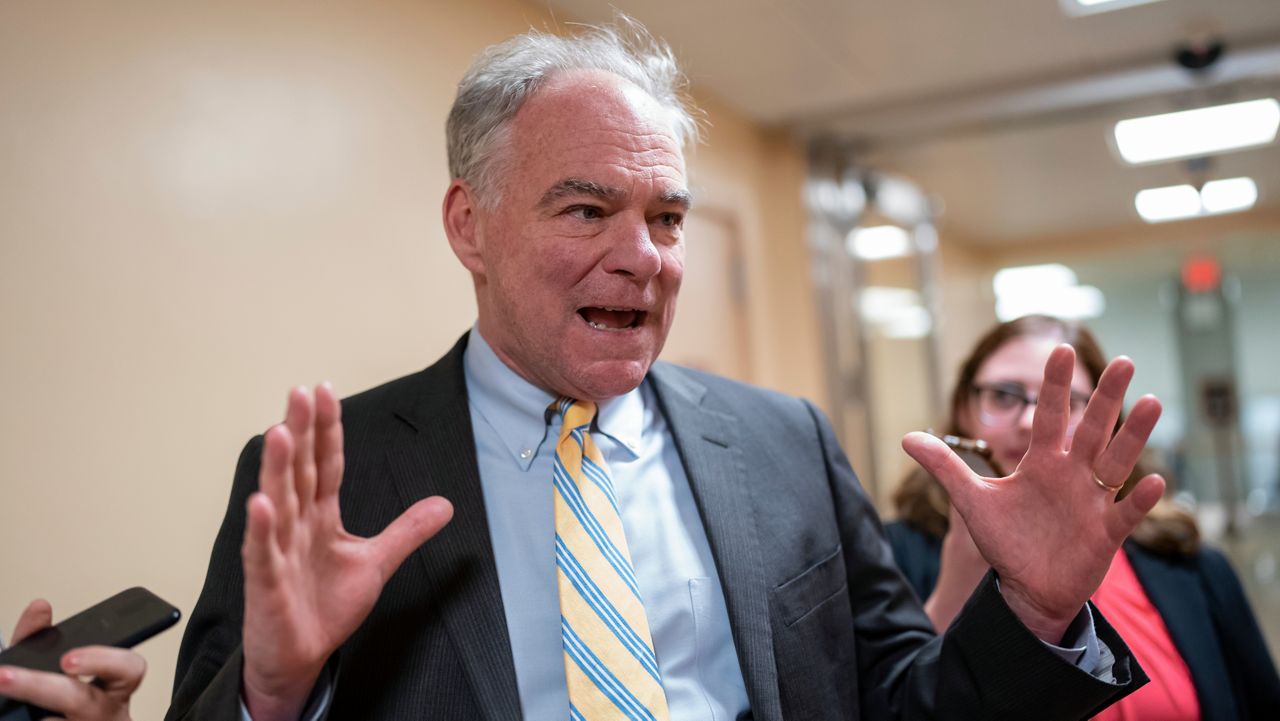After days of speculation that he may not seek another term in Congress, Virginia Sen. Tim Kaine announced that he will seek re-election in 2024.
The announcement gives Democrats a boost about their prospects for retaining the Senate majority in the face of what looks to be a challenging 2024 map. It also eases potential worries about an open Senate race in a state that overwhelmingly went for President Joe Biden in 2020, but elected a Republican governor one year later.
“I’m very happy to announce that I’m going to run for a third term in the Senate,” Kaine, the Democrats’ 2016 vice presidential nominee, said at a press conference in Richmond, Va., the city he led as mayor two decades ago.
Kaine has been a fixture in Virginia politics for decades. Kaine was elected the state’s lieutenant governor in 2001 under then-Gov. Mark Warner — now his counterpart in the Senate — before succeeding Warner as the state’s governor in 2006. After serving as Democratic National Committee chair in 2009, Kaine was first elected to the Senate in 2012 and won re-election in 2018.
"I’m a servant," Kaine said Friday. I love Virginia. I’m proud of what I’ve done. I got a whole lot more to do."
Kaine addressed reporters Friday after speaking at an economic development roundtable in Richmond with advocates, staffers and members of the community.
Democratic presidential nominee Hillary Clinton chose Kaine to be her running mate in 2016. Kaine was also reportedly on Barack Obama’s shortlist to serve as his vice president during his 2008 campaign for president, per POLITICO.
Kaine will be running a Virginia that has trended decidedly more toward the Democrats in the last decade, but elected Republican Glenn Youngkin in 2021 to serve as governor after Democrat Ralph Northam's term ended.
Regardless, the Virginia Democrat will no doubt enter the race as the odds-on favorite in a seat that Democrats will need to hold in order to retain their Senate majority. Democrats will be on the defense in three Republican-led states – Montana, Ohio and West Virginia – as well as battleground states Arizona and Pennsylvania.



